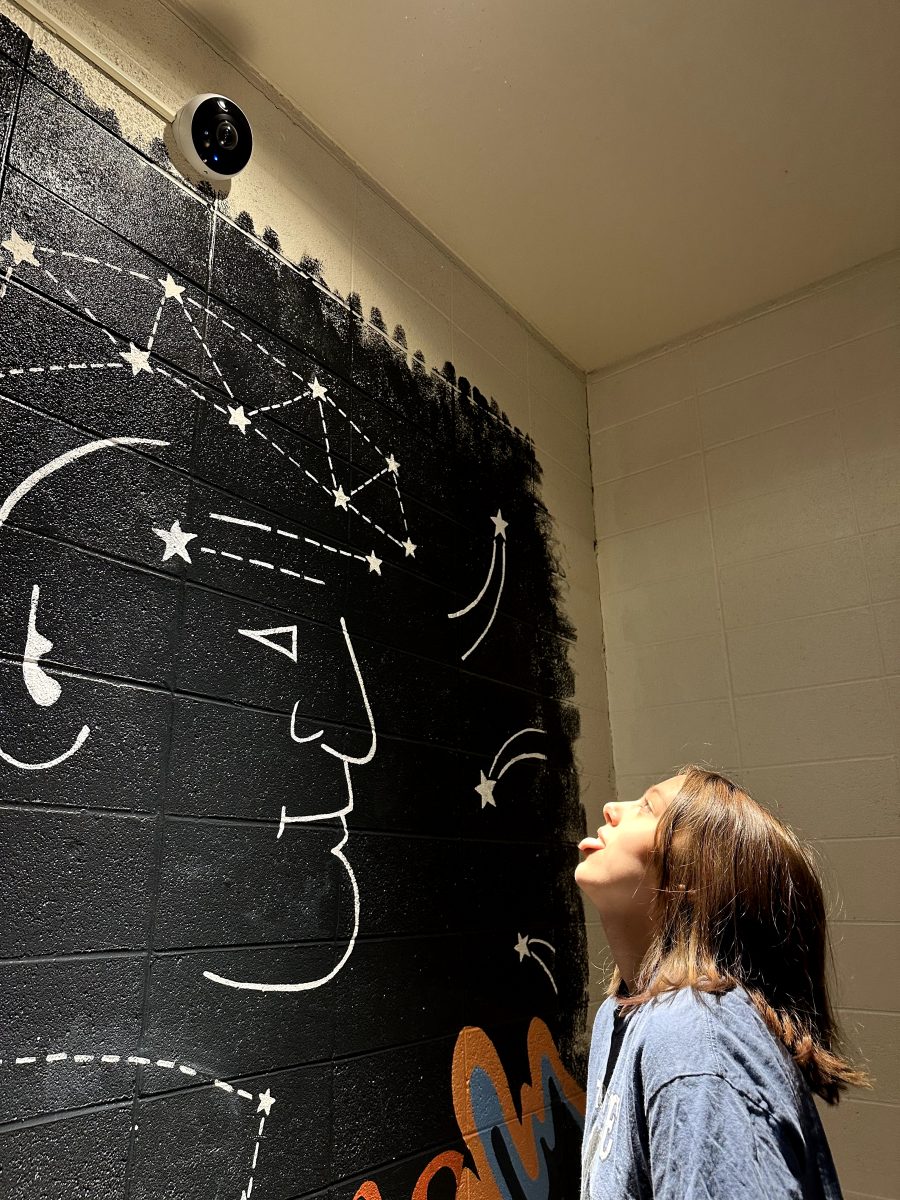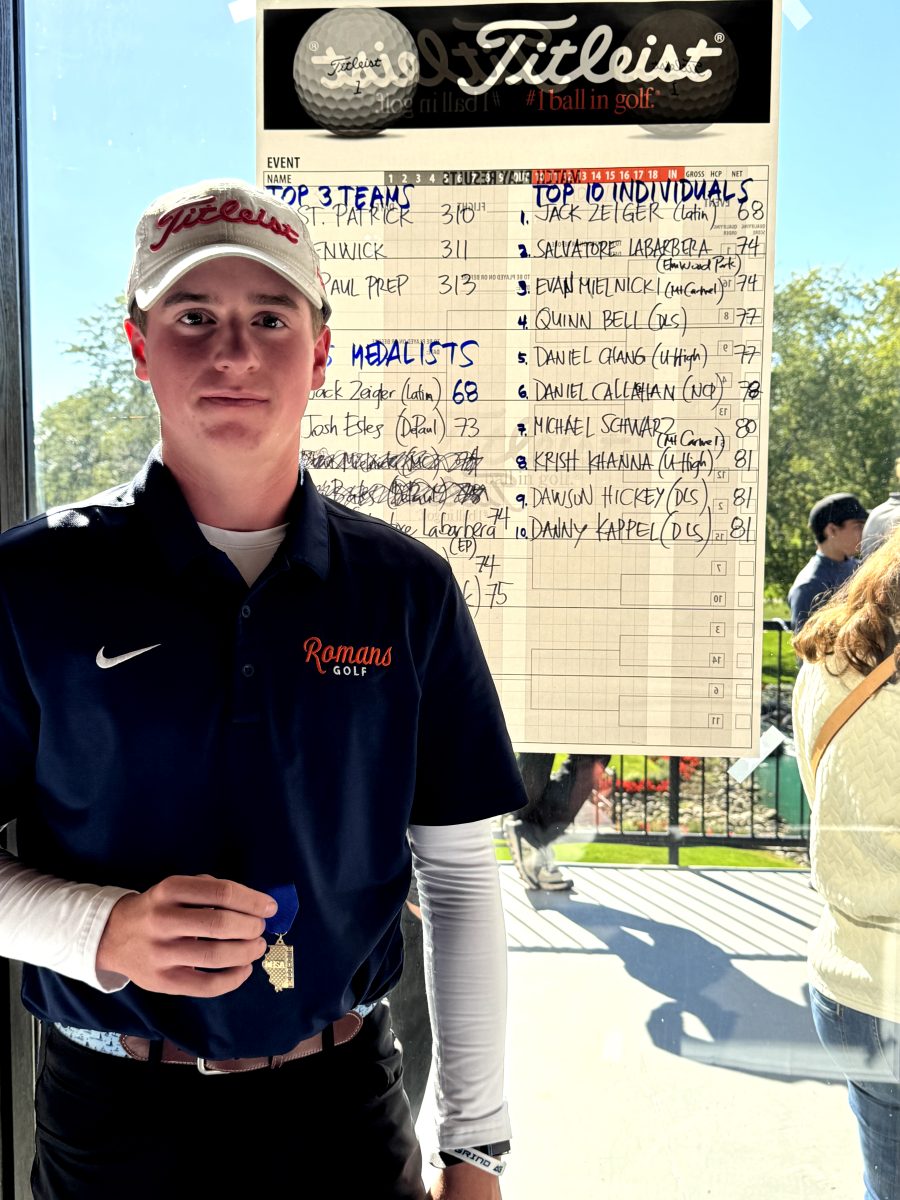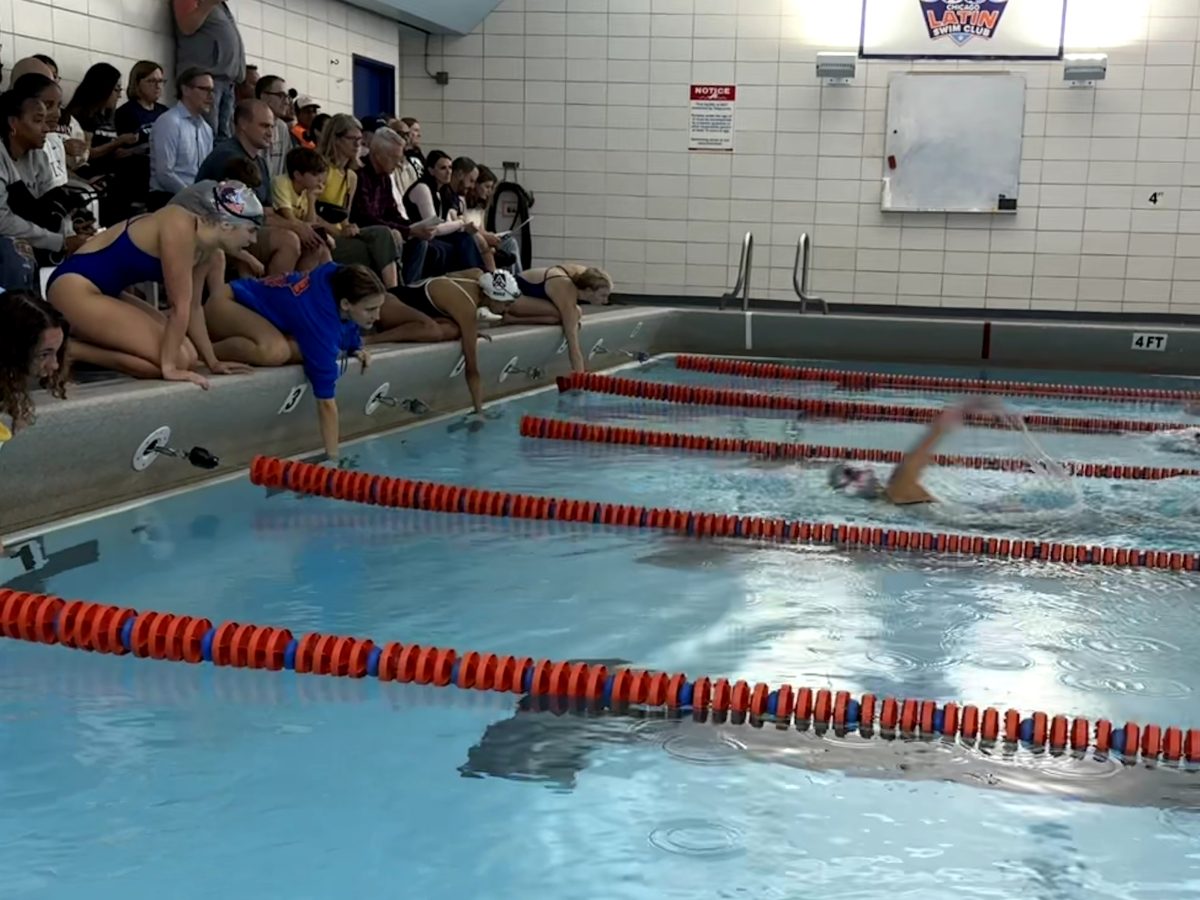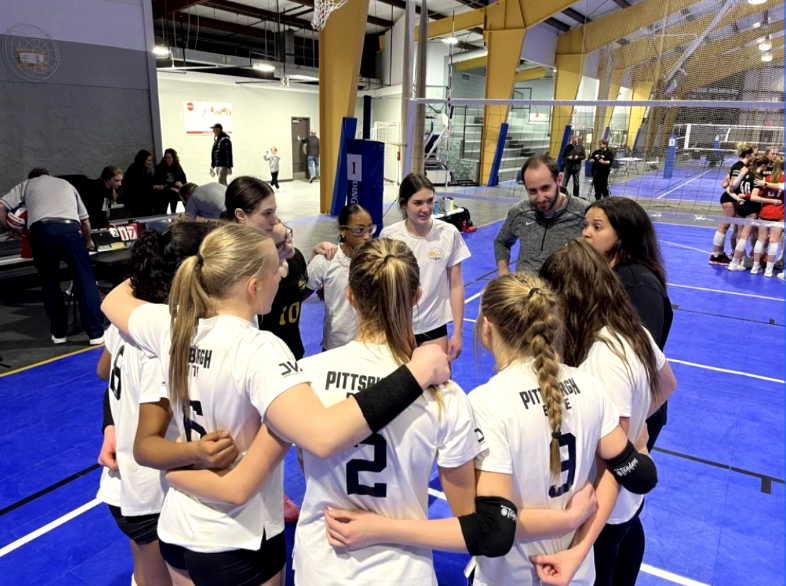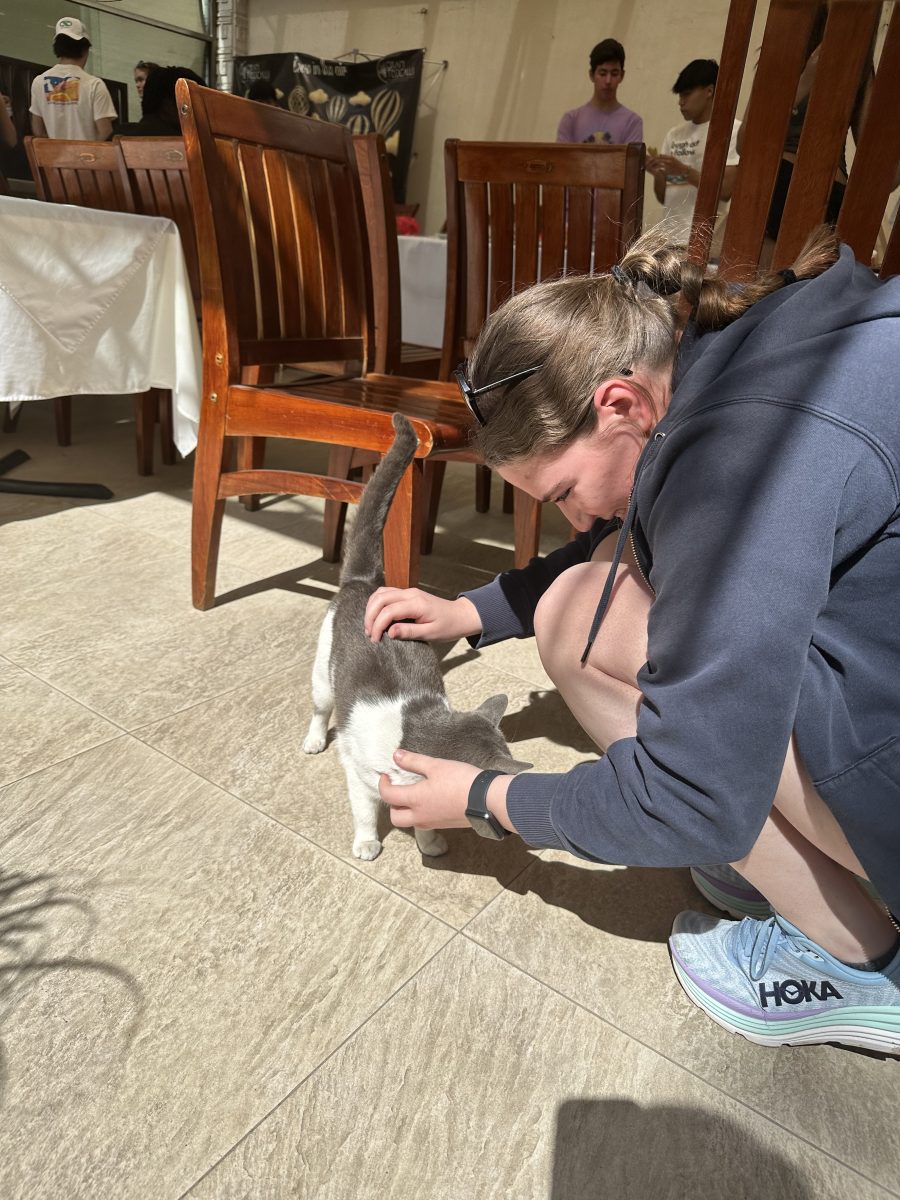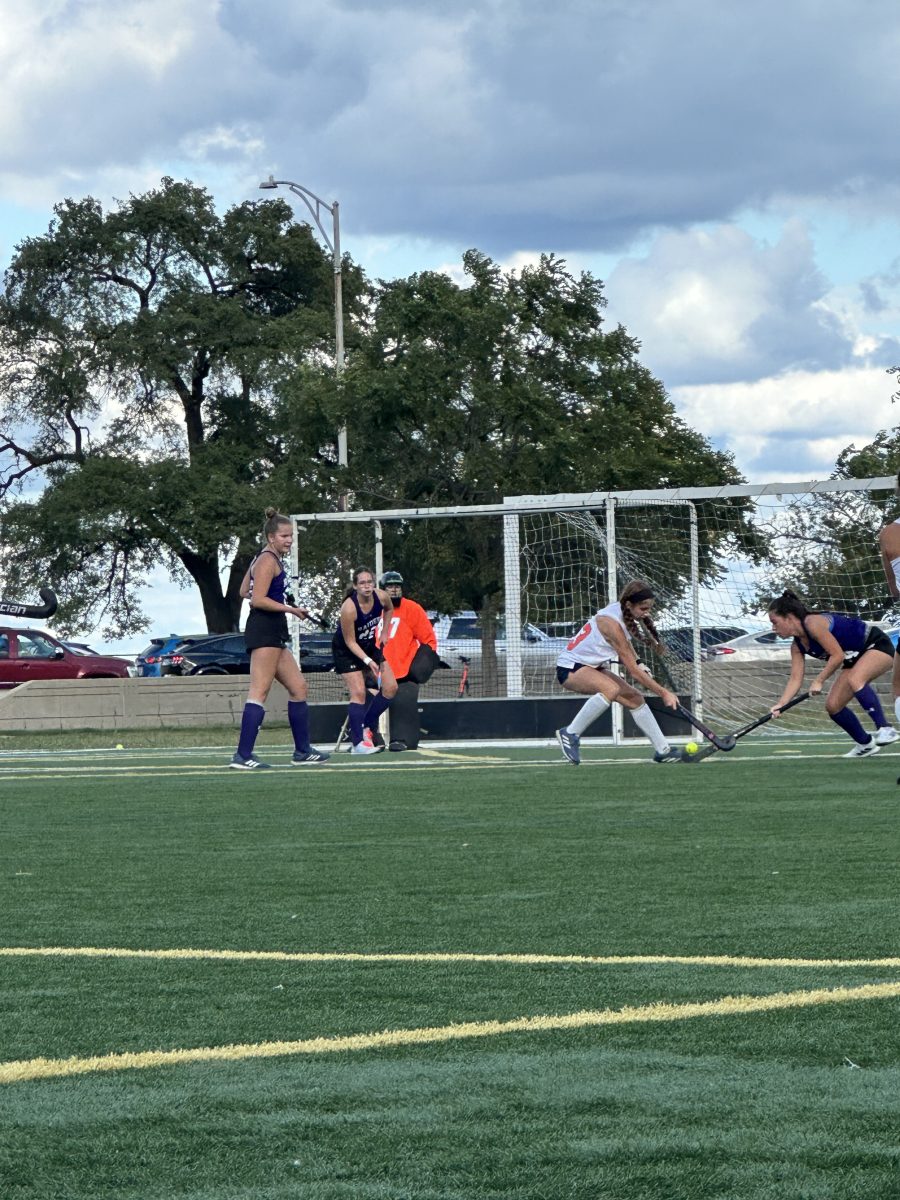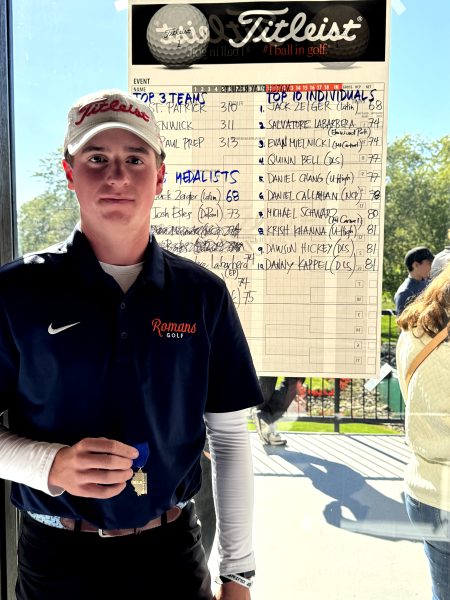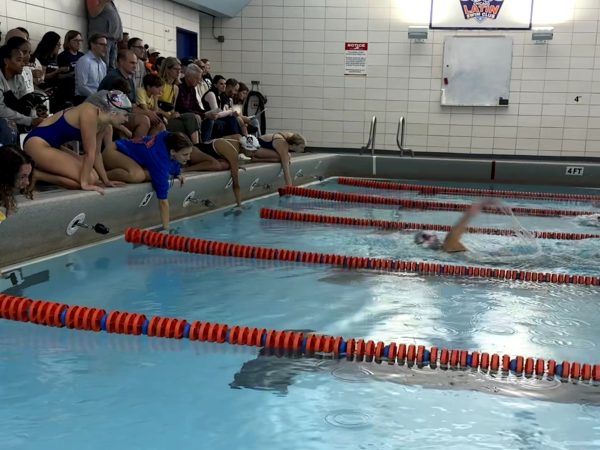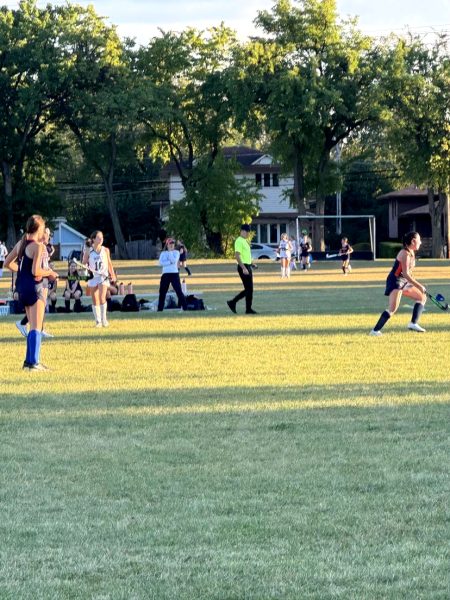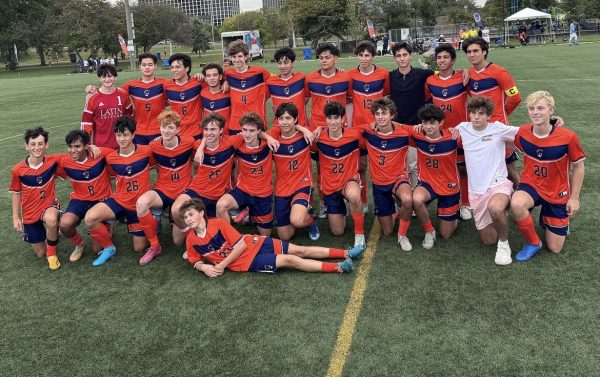Conquering your Game: Using Mindfulness to Enhance Sports Performance
Practicing mindfulness regularly can tremendously impact an athlete’s performance, reduce anxiety, and improve concentration.
Approximately 120 minutes before the College Football National Championship kicked off, Michigan’s star quarterback JJ McCarthy took the field, barefoot, sitting cross-legged against a goal post. Any external distractions—including his phone—were out of reach and blocked by the sound of his 10-minute guided meditation practice, a tool used to combat his past battle with depression.
According to the American College of Sports Medicine, “35% of elite athletes suffer from a mental health crisis, which may manifest as stress, burnout, or depression and anxiety.” This statistic underscores the critical need for mental well-being practices among athletes and emphasizes the importance of integrating mindfulness techniques into training regimens to enhance performance.
Over the past few years, as the term “mindfulness” has become a buzzword, its abundant usage has overwhelmed the word’s true essence and substance, leaving athletes without clear guidance on its application.
“All [mindfulness] means is being present in the current moment, which is what you truly need to perform well as an athlete,” Upper School counselor Jane Knoche said.
Dr. Michael Gervais offers further insight, describing mindfulness as “becoming aware of the inner experience and having the tools to navigate it.”
Scientifically, the practice of mindfulness techniques can increase gray matter in the prefrontal cortex, a region of the brain responsible for focus, and simultaneously lower the reactivity of the amygdala, which is responsible for managing stress and fear. In fact, meditation, a well-known form of mindfulness, shifts the nervous system from a sympathetic state (fight or flight) to a parasympathetic nervous system (PSNS), also known as the rest and digest mode.
Coupled together, these physiological changes help to improve focus, mood regulation, attention, and, most importantly, reduce anxiety and stress.
“If you are worrying about the future or dwelling on the past, you are going to have an emotional response,” Upper School counselor and former Division III athlete Anneliese Kranz said. “However, if you are focused on the ‘here and now,’ it’s going to be pretty hard for you to worry or think about the future or past.”
At its core, the human body functions in two parts: the body and the mind. When one is not in symbiosis with the other, poor performance can be expected; many athletes surrender after reaching this conclusion.
However, adopting mindful techniques can actually strengthen a mind-body connection.
“Mindfulness encourages you to be in the moment, helping you reach a flow state,” junior Carla McSweeney, a member of the U-18 USA National Ice Hockey team, said.
Adding to Carla’s sentiment, mindfulness has been shown to improve focus, concentration, and the ability to free oneself of negative thoughts. “It helps stop paralysis by overanalysis,” Carla said. “You won’t be frozen by the fact that you’re thinking about other things.”
Most importantly, mindful practices have been proven to reduce performance anxiety and increase the likelihood of better performance, especially for athletes.
Carla, a future Division I ice hockey player, has utilized the transformative power of mindfulness to hone her mental strength. “It took me a while to buy in,” she said. “However, I started to notice results. In a game, if [I’m] in the zone, maybe something goes wrong, [I] now have that skill to say ‘it’s okay,’ take a breath, and reset.”
The endorsement of mindful techniques by iconic athletes including Michael Jordan, Serena Williams, and Lewis Hamilton highlights their effectiveness in conquering the mind and overcoming negative thoughts.
However, what works for world-class athletes may not work for amateurs, and vice versa.
Every athlete’s brain functions differently—it is important to realize that the techniques promoted to the world may not work for each individual. “There are so many mindful practices, yet not one is better than the other,” Middle and Upper School yoga teacher Nicole Collias said. “All are very beneficial—whatever works for you works the best.”
One such technique, grounding, serves as a means to anchor oneself in the present moment, offering a reprieve from an anxious and negative mental state. Conversely, visualization involves directing focus toward a desired outcome and imagining it into reality. This can have immense effects on athletic performance, relieve performance anxiety, and increase self-confidence.
Furthermore, meditation is effective and relevant in sports settings. It optimizes on-court and field performance by reducing stress, preventing mind rumination, and helping to conquer fear.
However, these techniques may have limited value unless practiced on a regular basis. “If you are not doing [mindfulness] regularly, it’s hard to get to that state. You have to be doing it on a regular basis to notice the benefits of it,” Ms. Knoche said.
Yet with abundant and scientifically backed benefits, athletic teams and players worldwide have scarcely adopted and practiced mindfulness. Equipping coaches and staff with the knowledge and tools to foster mindfulness would cultivate resilience and ultimately optimize a team’s competitive edge. However, widespread adoption requires a shift in the sporting culture— mindfulness would need to be recognized as a fundamental aspect of holistic athlete development.
“Coaches need to learn how to promote it,” Ms. Collias said. “They need to be educated on mindfulness, meditation, and how to breathe before helping their players with their own struggles.”

Rohin Shah (’27) is a sophomore at Latin and is delighted to serve as news editor for The Forum. He hopes to become a proactive and investigative journalist,...





